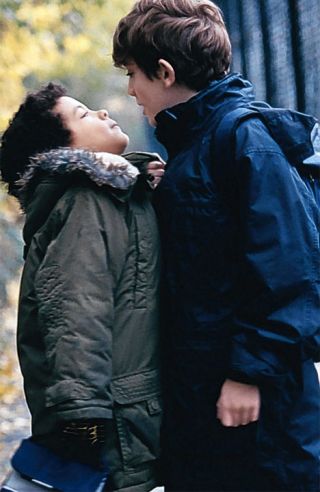Autism
New Research on Autism and Suicide
Research finds children with autism 28X more likely to attempt suicide.
Posted March 17, 2013
More than two years ago, when I wrote my post on Asperger's and suicide, I googled the terms "autism and suicide" and "Asperger's and suicide." I was appalled to find how few resources there were out there. They were sparse to the point of nonexistent. Now, that appears to be changing.
Penn State researchers Angela Gorman, Susan Dickerson Mayes, Jolene Hillwig-Garcia, Ehsad Syed, recently published a study in the journal Autism Spectrum Disorders investigating this question. As reported by Science Daily:

"Gorman, along with Professor of Psychiatry Susan Dickerson Mayes, Assistant Professor Jolene Hillwig-Garcia and Associate Professor Ehsan Syed, analyzed data provided by parents of 791 children with autism, 186 typical children and 35 non-autistic depressed children between 1 and 16 years of age. The researchers looked at achievement and cognitive ability, as well as various demographic variables. The four most significant demographic variables were Black or Hispanic, 10 years old or older, socioeconomic status and male. The results were published in the January issue of Research in Autism Spectrum Disorders.
The researchers found that the percentage of children with autism rated by their parents as sometimes to very often contemplating or attempting suicide was 28 times greater than that of typical children, though three times less than that of depressed non-autistic children. The four demographic variables were significant risk factors, as well."
The fact that they found socioeconomic status and racial differences were more significant than many other factors investigated, such as IQ or perceived “functioning level" is interesting – especially given previous findings on how these factors can impact the likelihood of and age of diagnosis and the quality of support received by individuals on the spectrum. Do you think that lack of quality support and proper diagnosis can worsen outcomes for a child dealing with neurological differences? I do.

They also found that a history of bullying was also very much associated with thoughts of suicide. What’s interesting about this group of findings is that they suggest that the chances for suicidal ideation are less related to the neurological differences related to having autism, but more related to social factors….in other words, how we are treated as a result of those differences. This is an important distinction – one that’s missed by many.
Uncomfortably often, I’ve read articles or heard comments from people who seem to want to downplay the impact of bullying in the lives of those on the spectrum. The arguments behind these statements tend to fall into to two categories:
- Bullying would be less hurtful to a person on the spectrum, either because they would not care about being ostracized (based on the assumption we don’t want relationships), or because we wouldn’t understand that we were being ostracized in the first place.
- The makeup of a person on the autism spectrum would predispose us to suicide, regardless of the circumstances, like some sort of “neurological time bomb” – thus bullying isn’t to blame, it’s our own makeup. (For an example of this, see Emily Bazelon’s articles criticizing the movie “Bully.”)
I find both arguments woefully ignorant about the experience of being on the spectrum. They certainly do not fit with my own experiences of being bullied. They are also profoundly dehumanizing and othering — their efficacy entirely dependent on viewing us as alien creatures so profoundly different from “normal” that what most would consider a no-brainer for neurotypical children (preventing abuse) is somehow not applicable. The ramifications of that are extremely disturbing.

Personally, I believe the pain of bullying and isolation is based on commonalities – the feelings and reactions that we share with others. Most human beings long to connect with others – we aren’t so different. But our differences make it more likely that we will experience rejection, ostracism, and bullying. Other minority groups experience this as well – which only makes it logical that a person who is a member of more than one group would experience this more intensely.
What can we due to prevent this from happening? It comes down to acceptance, diversity, and inclusion. Where a society is inclusive, isolation is minimized. People can feel accepted and supported. Can we, as a society, learn to honor difference, instead of treating it with disdain?
I hope so. I really do.
For updates you can follow me on Facebook or Twitter. Feedback? E-mail me.
My first book, Living Independently on the Autism Spectrum, will be available in stores in June 2013. It is currently available for pre-order at many major retailers, including Amazon and Barnes and Noble.
RELATED READING
Suicide ideation and attempts in children with autism
Frequency of suicide ideation and attempts in 791 children with autism (1–16 years), 35 nonautistic depressed children, and 186 typical children and risk factors in autism were determined. Percent of children with autism for whom suicide ideation or attempts was rated as sometimes to very often a problem by mothers (14%) was 28 times greater than that for typical children (0.5%) but less than for depressed children (43%). For children with autism, four demographic variables (age 10 or older, Black or Hispanic, lower SES, and male) were significant risk factors of suicide ideation or attempts. The majority of children (71%) who had all four demographic risk factors had ideation or attempts.
The Pain of Isolation: Asperger's and Suicide
A few years ago, there was a an article published about raising a child with Asperger's entitled, "My 10 Year Old Wanted To Die." I wasn't a fan of the article, which was tinged with a tone of pity/sensationalism that seems endemic to much media coverage of autism, but the title caught my attention. Although it was clearly chosen for shock value (and has since been changed), I found it didn't shock me at all. In fact, it struck a nerve – you see, had my first major brush with suicide when I was 13.
Bias, Bettelheim and Autism: Is History Repeating Itself?
"Autism caused by whiteness and affluence." When this headline popped up on my Twitter page, I had to roll my eyes. The subject of the tweet was a recent study from the Mind Institute which found 10 clusters of autism throughout California. Each of these clusters were in an area that had a large concentration of white, highly educated parents.
The researchers have been very quick to qualify these results, attributing them to differences in access to health care, rather than race. But readers and bloggers have been less cautious in their interpretation of this research, with headlines like: "Study reveals that Autism is caused by high concentrations of educated, affluent, white parents" and "Study: White People Have More Autism."
Social Justice and the Autism Spectrum
The fact of the matter is that gender, race, and socioeconomic status are factors that can have a strong effect on whether you are diagnosed, how soon you are diagnosed, and what care you can get, once diagnosed. The skewed statistics are well known, so much so that they are a part of nearly every article: "Autism affects boys 3 - 4 times more often than girls." "Autism More Prevalent in Upper-Income Households," "Autism Linked to Presence of Educated White People".
Many take these stats at face value. I don't, because in my life I've had a unique opportunity to see these factors in action. I spent the first ten years of my life on the west coast, in one of the most affluent areas of the country. Although my teachers never made the autism connection, I know that I benefitted from a level of support that is uncommon in other areas. It's something I can tell you from direct experience.
Friends and Allies
In the second or third grade, I remember being asked about friends. "Oh, I have lots of friends," I said, reciting a list that included all my teachers, day care providers, school janitors, and most of the kids I knew. Everyone was nice...at least I thought. I didn't understand the true nature of friendship — until I was bullied.




